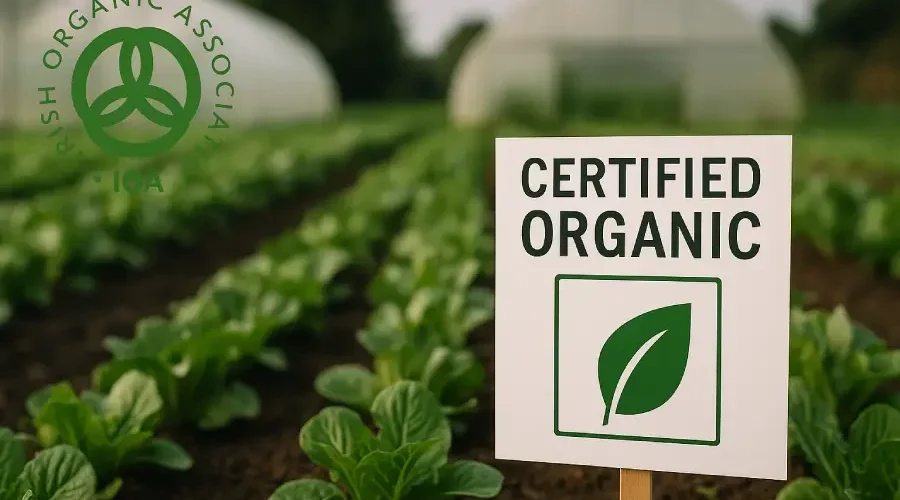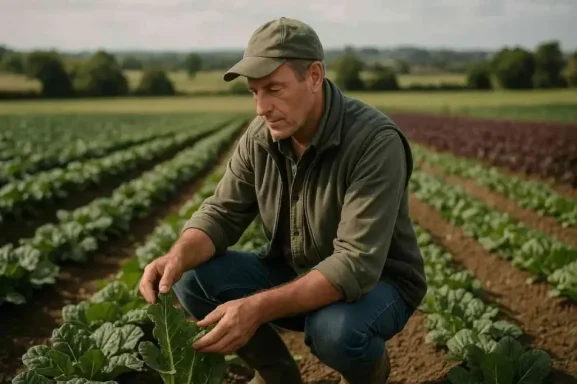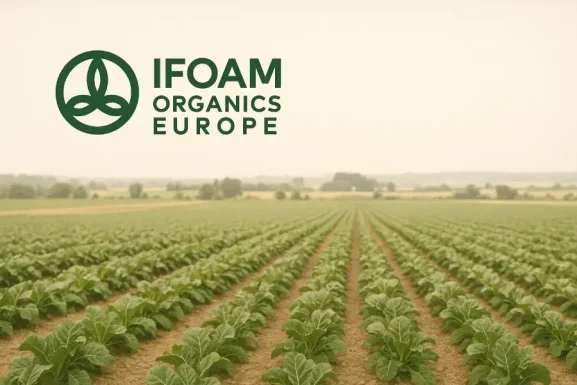The Irish Organic Association: Leading Organic Farming in Ireland
The Irish Organic Association (IOA) has been shaping organic food and farming in Ireland for over 40 years. As the country’s longest established organic certification body, it plays a vital role in ensuring that organic produce meets the highest standards. But the IOA is more than a certifier — it is also a promoter, educator, and advocate for sustainable farming in Ireland.
Who the Irish Organic Association Is
Founded in the early 1980s, the IOA has become the trusted body for organic certification in Ireland. Thousands of farmers, growers, and processors carry its symbol on their products. This gives consumers confidence that what they are buying is genuinely organic, produced according to strict rules, and subject to regular inspection.
The IOA also represents the broader organic movement in Ireland. It connects farmers and food producers with consumers, chefs, retailers, and policymakers. Through its work, the IOA ensures that Irish organics are both credible and accessible.
Certification and Support Services
Certification is at the heart of the IOA’s role. Every organic farm or business in Ireland must be inspected and certified to market food under the organic label.
The IOA provides:
- Efficient certification services across Ireland.
- Clear guidance on organic food and farming standards.
- Ongoing support for farmers and processors converting to organic production.
- Compliance oversight, ensuring Irish organics maintain their reputation at home and abroad.
Organic certification in Ireland is rigorous, but the IOA helps farmers navigate the process with practical advice and technical expertise.
Promoting Irish Organic Farming
The IOA doesn’t stop at certification. It actively promotes organic food and farming to strengthen the sector. activities include:
- Publishing *Organic Matters* magazine and regular newsletters.
- Hosting farm walks and training through the *Field Talk* programme.
- Sharing member stories through podcasts, media profiles, and social channels.
- Working with chefs, processors, and retailers to bring more organic food to consumers.
By doing this, the IOA makes sure Irish organic farmers are visible, supported, and connected to their markets.
The Rules That Shape Organic Food in Ireland
Organic farming in Ireland operates under detailed EU and national rules. The IOA ensures members follow these standards, which cover everything from soil management to animal welfare.
Recent updates show how strict these standards are:
- Animal welfare: Dehorning or castrating cattle over six months results in loss of organic status for the animal.
- Non-organic animals on organic land: Conventional livestock may graze organically managed land for up to 180 days, but never alongside organic animals.
- Veterinary treatments: Strict limits apply to antibiotics and synthetic treatments. Animals exceeding limits must leave the organic system.
- Housing: At least half of housing space must be solid and bedded, not slatted.
Even natural inputs are closely regulated. Poultry litter, for example, must be handled with strict precautions to prevent disease risks. EU law also sets precise lists of substances permitted in organic production, updated as science advances.
These rules protect consumer trust. When you see the IOA organic symbol, you know the product is backed by independent inspections, residue testing, and tough penalties for fraud or contamination.
Why Organic Standards Matter
Organic standards in Ireland do more than protect the consumer.
- Guarantee higher animal welfare.
- Support biodiversity and soil health.
- Reduce reliance on synthetic inputs.
- Contribute to climate action by lowering environmental impact.
The IOA’s role in maintaining these standards ensures that organic farming in Ireland continues to deliver real value for people, animals, and the environment.
Challenges Facing Organic Farming in Ireland
Despite growth, Irish organic farming still faces obstacles:
- Market demand: Farmers need consistent demand and fair pricing to sustain production.
- Imports: EU rules allow imports of organic products from recognised third countries until 2026. While this helps supply, it can pressure Irish farmers if overseas rules are weaker.
- Compliance burden: Record-keeping, inspections, and paperwork can be heavy, especially for small farms.
- Public awareness: Many consumers are still unclear about what “organic” really means.
The IOA works to overcome these issues by lobbying for stronger national supports, building consumer trust, and promoting Irish organic produce at home and abroad.
Building the Future of Sustainable Farming in Ireland
Ireland’s National Organic Strategy aims to increase the land farmed organically and boost access to local organic food. At the same time, the EU’s Farm to Fork Strategy targets 25% of farmland under organic management by 2030.
The IOA is central to these ambitions:
- Helps farmers through conversion.
Pushes for better supports under the Common Agricultural Policy. - Champions research and innovation in organic production.
- Promotes Irish organics in European and global markets.
By supporting organic certification in Ireland and ensuring high standards, the IOA strengthens the credibility of Irish organic food both locally and internationally.
Backing a Sustainable Food Future
The Irish Organic Association has been leading organics in Ireland for over 40 years. From certification to promotion and policy advocacy, it ensures that organic farming is trusted, visible, and growing.
Choosing IOA-certified products supports farmers, protects the environment, and promotes sustainable farming in Ireland. As demand for healthy, sustainable food grows, the IOA’s role will only become more important in shaping the future of Irish organics.
Frequently Asked Questions
The IOA is Ireland’s longest established organic certification body. It certifies farms, growers, processors; promotes organic food; educates stakeholders; and advocates policy for sustainable farming.
IOA-certified farms must follow EU and Irish rules covering soil management, animal welfare, housing, veterinary treatments, and permitted inputs. Housing must meet specific solid/bedded space requirements; antibiotics and synthetic treatments strictly limited.
IOA guides on standards, offers technical expertise, helps with inspections, assists with compliance paperwork, provides ongoing support during and after conversion.
Organic standards ensure: consumer trust, high animal welfare, soil health, biodiversity, reduced synthetic chemical usage, and alignment with climate action goals.
They face: inconsistent demand and pricing, competition from imports under weaker rules, heavy compliance and bureaucracy especially for small farms, and low consumer awareness of what “organic” means.
Ireland aims to expand the share of land farmed organically under its National Organic Strategy. EU’s Farm to Fork Strategy targets 25% of farmland under organic management by 2030. IOA pushes for stronger CAP supports, innovation, and better market access.



